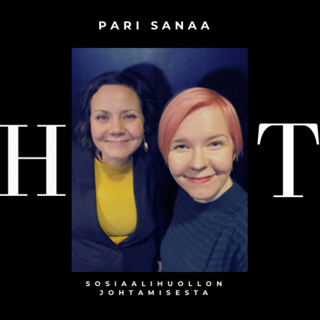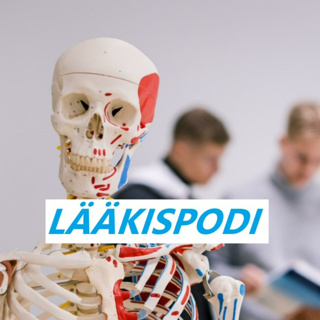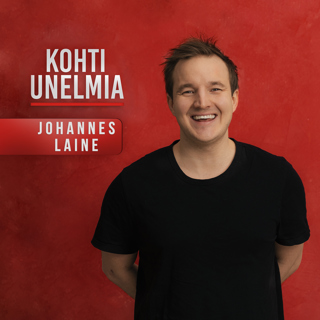
#034: Susanna Bächle Story
Dr Susanna Bächle is a scientist with a background in Immunology and Virology. Originally from Germany, she has lived, studied and worked in Germany, Australia, Sweden and the US. After graduating with a PhD in Medical Sciences from Karolinska Institutet she moved to Boston (US) to pursue a career at the interface of science and business. At the moment she works for Addgene, a scientific nonprofit organization that aims to accelerate science by facilitating sharing of materials and information. She is passionate about science, innovation, entrepreneurship and global health." To me a career path is not a line, it really is a zigzag, and often enough a random looking or even 'lucky' turn to a new job was determined by a meeting, a follow-up email, a networking event which seemed unimportant at the time but ultimately make up the many small necessary steps for shaping your own 'luck'. - Dr Susanna Bächle, Outreach Scientist at Addgene For complete show notes, including links to items mentioned in this episode and a transcript of the podcast, visit www.phdcareerstories.com. You can also find us on social media: www.facebook.com/PhDCareerStories www.twitter.com/PhDCareerPod www.instagram.com/phdcareerstories www.linkedin.com/company/phd-career-stories
27 Loka 201712min

#033: Tips&Tricks Michael Gralla: what non-scientific skills are important for your career building
Michael Gralla returns for a Tips & Tricks on Career Building, to shed light on what else is important to work on despite your scientific skills. In episode 26 you can hear what motivates him and why he is currently pausing his PhD for is own human capital company. Linkedin: in/michaelgralla Website: fby – Find the Best in You. Twitter: @michaelgralla My three tips: 1) Become an expert in a discipline unrelated to your PhD project. 2) Get out! 3) Be brave.
13 Loka 20174min

#032: Anestis Dougkas Story
Anestis Dougkas is a Researcher in nutrition, health and eating behaviour at the Centre for Food and Hospitality Research at Institut Paul Bocuse, Lyon, France. He graduated from the Aristotle University of Thessaloniki, Greece with a four-year B.Sc. degree in chemistry with specialization in biochemistry and food chemistry. He continued his studies and received a M.Sc. in food science and nutrition and a Ph.D. in nutrition, within the Nutritional Research Group at University of Reading, UK. His Ph.D. work focused on the associations between consumption of dairy products and the risk of obesity. Specifically, he undertook epidemiological research and human dietary intervention trials, which investigated the effect of dairy on appetite regulation. In 2011, he got a Post-Doctoral Research Fellowship at Food for Health Science Centre, Lund University, Sweden. His research interests are within the area of protein and appetite regulation, obesity prevention and sustainable diets. He is a member of the Nutrition Society, American Society for Nutrition and the Association for the Study of Obesity and alumni of the European Nutrition Leadership Platform. Don't miss out on any of our PhD Career Stories podcasts. Subscribe to the show in a way that suits you and say hello to us on social media! www.phdcareerstories.com www.facebook.com/PhDCareerStories www.twitter.com/PhDCareerPod www.instagram.com/phdcareerstories www.linkedin.com/company/phd-career-stories
29 Syys 201719min

#031: Jenny Zie Story
In episode 31 of PhD Career Stories, Jenny Zie tells us about her journey from marine research to career coaching and what she has learned along that path. Jenny Zie finished her PhD at Stockholm University in 2014 and since then worked as a researcher in industry and with competence development at the Swedish Government Offices (Regeringskansliet). Now she is working as a career coach at Uppsala municipality (Uppsala kommun).
15 Syys 201711min

#030: Tips&Tricks Åsa Burman: how to finish your academic work on time
In episode 30 of PhD Career Stories, Åsa Burman returns for a tips & tricks-themed podcast. In this episode, we learn more on why shifting focus from what you are working with to how you are working will increase your productivity. In addition, we are presented with different productivity tools and how you can apply them to your own work situation. Dr Åsa Burman has a broad background and professional experience from business, academia, and social entrepreneurship. Amongst other things, Åsa is the Founder and CEO of Finish On Time - a company that helps graduate students, postdocs, and other academics to finish their academic work on time and feel well during the process. So far, over 1000 PhD students, supervisors, professors and researchers have participated in conferences and seminars organised by Åsa and her colleagues Johanna Clausen Ekefjärd and Henrik Levinsson. Earlier this year, she also published her first book: Bli klar i tid och må bra på vägen: Handbok för doktorander (Natur & Kultur, 2017) which is to be translated into English during next year. Don't miss out on any of our PhD Career Stories podcasts. Subscribe to the show in a way that suits you and say hello to us on social media! www.phdcareerstories.com www.facebook.com/PhDCareerStories www.twitter.com/PhDCareerPod www.instagram.com/phdcareerstories www.linkedin.com/company/phd-career-stories
1 Syys 201716min

#029: Alfred Orina Isaac Story
Professor Alfred Orina Isaac is a Pharmaceutical Scientist with a specific interest in Neuroscience. His research is focused in neurotoxicology and neuroprotection mechanisms in the brain. Currently, he is studying the neurotoxicity of Khat in a mouse model; and also the neuroprotection capability of naturally found compounds against neurotoxic drugs e.g. Melarsoprol. His long term goal is to start the first institute for brain research in Kenya and he has published a book entitled, "Scientific Writing for Students and Young Scientists".
18 Elo 201710min

#028: Åsa Burman Story
We are joined by Dr Åsa Burman who has a broad background and professional experience from business, academia, and social entrepreneurship. Amongst other things, Åsa is the Founder and CEO of Finish On Time - a company that helps graduate students, postdocs, and other academics to finish their academic work on time and feel well during the process. So far, over 1000 PhD students, supervisors, professors and researchers have participated in conferences and seminars organised by Åsa and her colleagues Johanna Clausen Ekefjärd and Henrik Levinsson. Earlier this year, she also published her first book: Bli klar i tid och må bra på vägen: Handbok för doktorander (Natur & Kultur, 2017) which is to be translated into English during next year. In addition, Åsa holds a PhD in Philosophy from Lund University and has also conducted research as a Fulbright Scholar at the University of California, Berkeley. After finishing her PhD, she started working as a Management Consultant at McKinsey & Company and then continued to work with social entrepreneurship. As of a few years ago, Åsa has returned to academia and is currently working as an Assistant Professor in Practical Philosophy at Stockholm University. Don't miss out on any of our PhD Career Stories podcasts. Subscribe to the show in a way that suits you and say hello to us on social media! www.phdcareerstories.com www.facebook.com/PhDCareerStories www.twitter.com/PhDCareerPod www.instagram.com/phdcareerstories www.linkedin.com/company/phd-career-stories
4 Elo 201722min

#027: Our 1 year anniversary: how it started and where we are heading
A year ago, [Tina] talked to Michele. At that time, he was a PhD student looking for a job in industry. […] "I have a feeling that you have a lot of energy; would you like to share what you have learned with other people so that you will make life easier for them? Because, you see, I have a dream and a vision to start a podcast." And Michele said, "Why not? I would love to! I don't know how to do it, but I can probably learn." To learn how this story continued to where we are now just click and listen...
21 Heinä 201728min





















